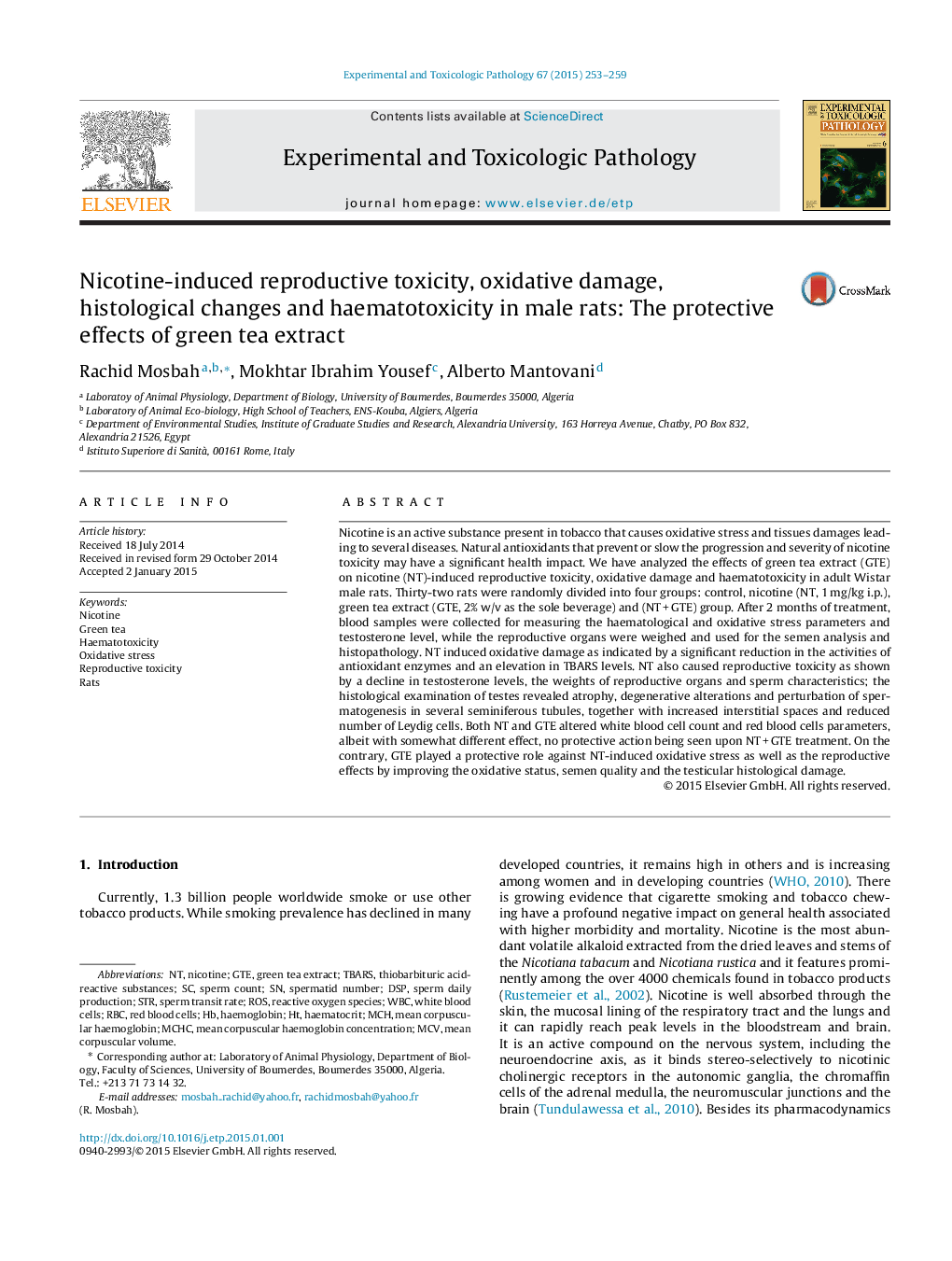| Article ID | Journal | Published Year | Pages | File Type |
|---|---|---|---|---|
| 2498841 | Experimental and Toxicologic Pathology | 2015 | 7 Pages |
Nicotine is an active substance present in tobacco that causes oxidative stress and tissues damages leading to several diseases. Natural antioxidants that prevent or slow the progression and severity of nicotine toxicity may have a significant health impact. We have analyzed the effects of green tea extract (GTE) on nicotine (NT)-induced reproductive toxicity, oxidative damage and haematotoxicity in adult Wistar male rats. Thirty-two rats were randomly divided into four groups: control, nicotine (NT, 1 mg/kg i.p.), green tea extract (GTE, 2% w/v as the sole beverage) and (NT + GTE) group. After 2 months of treatment, blood samples were collected for measuring the haematological and oxidative stress parameters and testosterone level, while the reproductive organs were weighed and used for the semen analysis and histopathology. NT induced oxidative damage as indicated by a significant reduction in the activities of antioxidant enzymes and an elevation in TBARS levels. NT also caused reproductive toxicity as shown by a decline in testosterone levels, the weights of reproductive organs and sperm characteristics; the histological examination of testes revealed atrophy, degenerative alterations and perturbation of spermatogenesis in several seminiferous tubules, together with increased interstitial spaces and reduced number of Leydig cells. Both NT and GTE altered white blood cell count and red blood cells parameters, albeit with somewhat different effect, no protective action being seen upon NT + GTE treatment. On the contrary, GTE played a protective role against NT-induced oxidative stress as well as the reproductive effects by improving the oxidative status, semen quality and the testicular histological damage.
